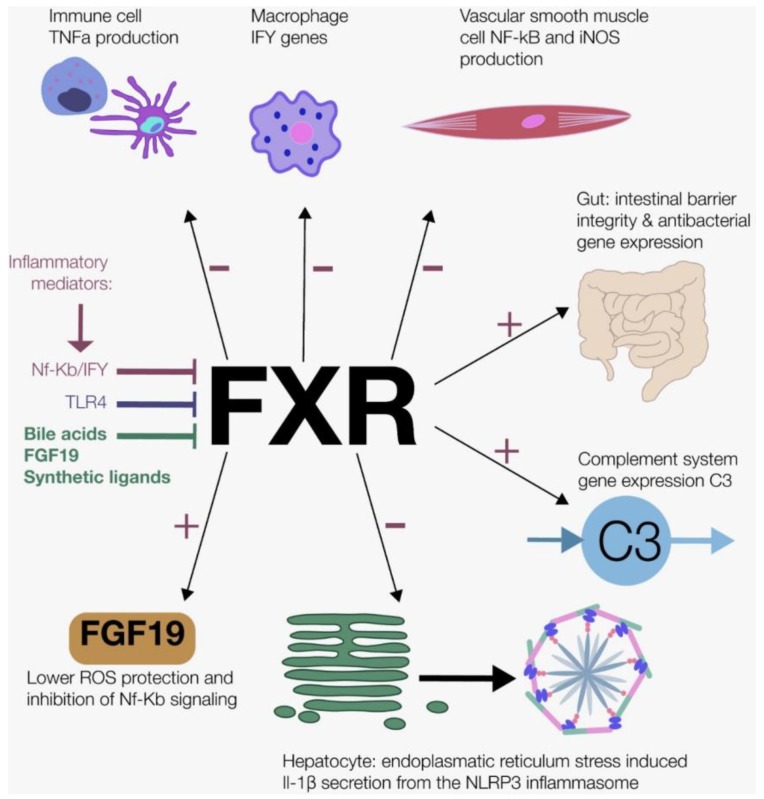Figure 2.
The role of Farnesoid X Receptor (FXR) in postprandial inflammation. FXR activation exerts several anti-inflammatory effects via different pathways: FXR activation suppresses interferon gamma (IFNγ)-related genes in macrophages and inhibits Tumor necrosis Factor-α (TNF-α) production in immune cells, inhibits nuclear factor kappa-light-chain-enhancer-of activated B cells (Nf-κB) activity and the pro-inflammatory enzyme inducible nitric oxide synthase (iNOS) in vascular smooth muscle cells, maintains intestinal barrier integrity and induces antibacterial gene expression, decreases endoplasmatic reticulum (ER) stress-induced NLRP3 inflammasome activation assessed with interleukin-1beta (IL-1β) and increases the gene expression of complement component factor 3 (C3). FXR not only has anti-inflammatory effects, but is also affected by the inflammatory response itself. Inflammatory stimuli TNF-α and IL-1β activate FXR via Nf-κB expression and IFNγ, Toll-like receptor 4 (TLR4), bile acids, fibroblast factor 19 (FGF19) and synthetic ligands also stimulate FXR.

